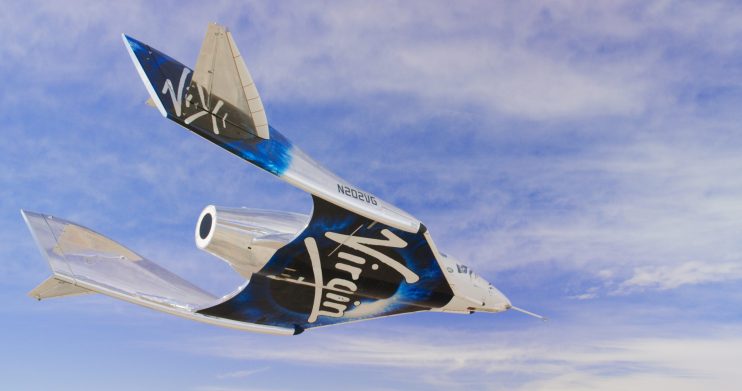Virgin Galactic’s shares rocket as Branson completes first fully crewed space flight

Virgin Galactic’s shares jumped this morning after it successfully completed its first fully crewed space flight yesterday, with billionaire founder Sir Richard Branson on board.
While Branson didn’t make it to the moon, Virgin Galactic’s shares might. The New Mexico-based company’s stock jumped as much as 22 per cent premarket this morning.
Virgin Galactic’s shares have doubled in the year up to last Friday, valued at around $11.8bn (£8.5bn) overall.
Branson’s journey to the edge of space, lasting just over an hour, makes him the first of the space tourism pioneers to use their own vehicle.
The London-born billionaire left the ground in Virgin Galactic’s rocket plane VSS Unity, marking its 22nd test flight. The plane was carried by VSS Eve, a carrier mothership, and separated at 15km (50,000ft).
VSS Eve then took the fully crewed ship to about 90km (295,000ft) where the crew experienced weightlessness.
Virgin galactic said the crew also carried out a number of “test objectives”, including “evaluating the commercial customer cabin, the views of Earth from space, the conditions for conducting research and the effectiveness of the five-day pre-flight training program at Spaceport America.”
Branson delivered a message to children from space, saying he was “once a child with a dream” and is now “an adult in a spaceship”.
VSS Unity then went into a glide on descent and returned to its launch site.
Tesla and SpaceX founder Elon Musk attended the launch in New Mexico, while Amazon and Blue Origin founder Jeff Bezos is set to launch in his own rocket on 20 July.
A few days before the launch, Bezos’s rival space tourism company Blue Origin took aim at Virgin Galactic on Twitter for not reaching the Kármán line, the “internationally recognised” altitude of where space begins.
It said: “From the beginning, New Shepard was designed to fly above the Kármán line so none of our astronauts have an asterisk next to their name.”
Branson has touted the flight as a precursor to a new era of space tourism, though it’s hardly a discount service.
Still, demand is apparently strong with several hundred wealthy would-be astronauts having already booked spots, priced at $250,000 per ticket.
The Swiss-based investment bank UBS has estimated the potential value of the space tourism market reaching $3bn (£2.1bn) annually by 2030.
Virgin has plans for two further test flights of the spaceplane before beginning commercial service in 2022.
Branson said: “I have dreamt about this moment since I was a child, but nothing could have prepared me for the view of Earth from space. We are at the vanguard of a new space age. As Virgin’s founder, I was honoured to test the incredible customer experience as part of this remarkable crew of mission specialists and now astronauts. I can’t wait to share this experience with aspiring astronauts around the world.”
Michael Colglazier, chief executive officer of Virgin Galactic, said: “Today is a landmark achievement for the Company and a historic moment for the new commercial space industry. With each successful mission we are paving the way for the next generation of astronauts. I want to thank our talented team, including our pilots and crew, whose dedication and commitment made today possible. They are helping open the door for greater access to space – so it can be for the many and not just for the few.”
Alongside Branson on board VSS Unity were: Beth Moses, Chief Astronaut Instructor; Colin Bennett, Lead Flight Operations Engineer; and Sirisha Bandla, Vice President of Government Affairs and Research Operations. The VSS Unity pilots were Dave Mackay and Michael Masucci. Kelly Latimer and CJ Sturckow piloted VMS Eve.